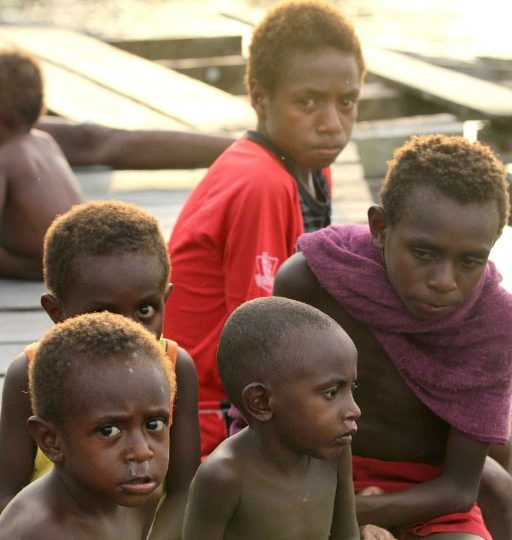Worried parents braved long queues and scorching heat in the remote Papuan jungle to get their sick babies treated Friday, as the impoverished region grapples with a deadly measles-and-malnutrition outbreak.
AFP has been able to access the isolated village of Ayam, where houses sit on stilts and the only bare-bones clinic has no modern medical equipment, a few rickety beds, and overwhelmed nurses struggling to cope.
There are no doctors in the community of several hundred which has seen over two dozen cases of measles. Crisscrossed by rivers and swamps, Ayam is a 10-hour boat trip to the nearest major city Timika.
The Indonesian military has sent medical teams to Ayam and other remote locations across the vast region to prevent the spread of what they are calling an “extraordinary” outbreak.
Villagers are also suffering from other health problems like diarrhea and respiratory infections.
“What we really need is medicine and food so our children here can be healthy again… that’s what we need now,” said 28-year-old father Yunus Komenemar, whose one-year-old son was diagnosed with measles.
Ayam is in the Asmat district where some 800 children have been sickened, while as many as 100 others, mostly toddlers, are feared to have died in the outbreak, which was first made public this month.
Harrowing images from affected communities showed rail-thin children lying on rickety beds with their rib cages exposed and a malnourished girl lying on the floor hooked up to an IV drip.
“I’m sad, I’m angry, and I feel pity,” said Norce, a mother of a five-year-old being treated for measles in Agats, another hard-hit community.
In Ayam, nurse Abednego Bakay said his clinic was short of almost everything, including crucial vaccines.
“The equipment here is basic and so we can only try to serve people by giving them medicine” he added.
‘Too late’
The head of the military medical teams acknowledged that Jakarta’s response was slow.
“Let’s be honest, maybe the local and national governments became aware of this (outbreak) too late,” Asep Setia Gunawan, the military’s medical task force chief, told AFP.
“The conditions here are serious and that’s why we are calling this an ‘extraordinary’ outbreak.”
The problems in Ayam and other villages across Papua are a combination of myriad problems including years of national and local government neglect, a lack of jobs, and logistical hurdles in boosting the quality of life for remote communities, experts said.
They warn that this crisis will be repeated without more action to pull the province out of grinding poverty and end a low-level separatist insurgency fueled by resentment over poor conditions.
“I hope this crisis will help some people here — at least those in power — to change their minds, but if they choose business as usual another crisis will appear next year as well,” said Andreas Harsono, a Jakarta-based campaigner for Human Rights Watch.
Komenemar, whose young son was being treated for measles, worried about what will happen when the military leaves Ayam.
“The government is paying more attention, aid is coming in and there are (positive) changes, but we want it to last,” he said.
Many Papuans live a semi-nomadic existence and lack proper medical care, schools or other basic services, including access to clean water.
Angelina Sanpai, a mother of six who was waiting to get treatment for her six-month old baby’s diarrhea, said putting food on the table is a daily struggle.
“I’m used to crying because we’ve got so little food,” she said.




